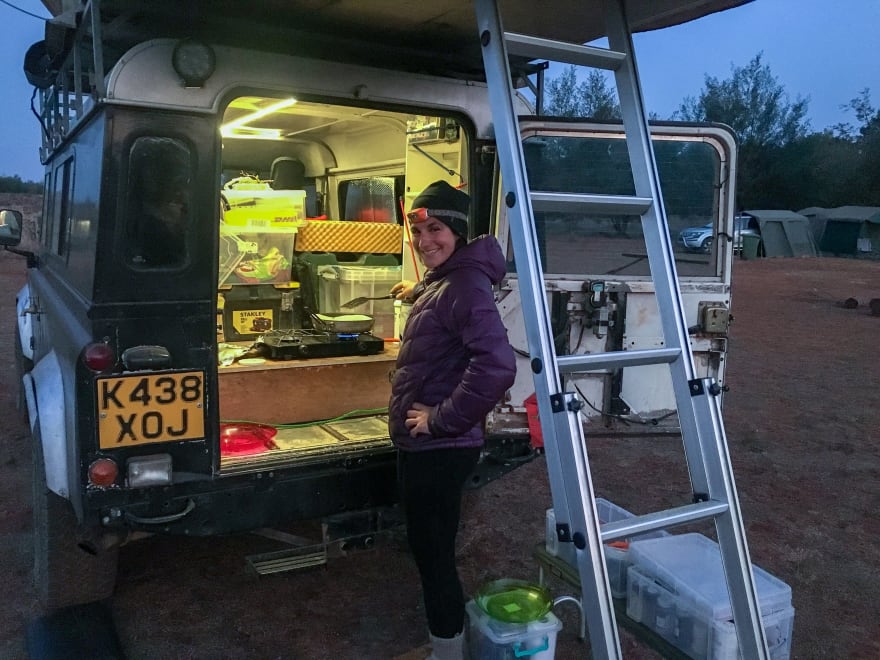I wrote my first piece of code in a course I took my freshman year at Dartmouth College despite missing one of the prerequisites - Introduction to Computer Science. Although it computed a solution, my code was ugly and opaque. As I moved forward with my engineering degree (and took that missing prereq) I began to appreciate well-written code that was elegant, concise, and comprehensible. My engineering focus was control theory, where a large amount of coding was required to model systems. I loved the ability to easily adjust the variables of a virtual world and the creative yet logical process used to build it.
During college I also fell in love with rock climbing, a natural extension of my already developed passions for the environment and the outdoors. Most people can relate to the tension that arises between competing desires without enough time to satisfy everything. In my case the result was midnight ski trips timed to arrive back on campus for 8am class, with sleep being the main casualty.
After graduating I chose the less traditional path, and moved to Yosemite as a member of the Search and Rescue team where I learned technical rope rescue systems and joined an incredible community. This hooked me on the seasonal lifestyle, and a couple years later I made my first trip to Antarctica, where I worked as a Fuels Operator supporting all the science that happens at the bottom of the earth. I've also spent a season on ski patrol and completed a dream trip, driving a Land Rover from Cape Town, South Africa to Addis Ababa, Ethiopia, climbing along the way.
Though my work and travels have been varied, there have been some common threads: most importantly, alignment with my morals and a certain level of critical thinking. Problem solving is one of my passions, and it comes in many forms, from organizing a month long expedition to climb big walls in Greenland to successfully moving fuel 13 miles across an Antarctic glacier between McMurdo station and the airfield.
I prefer robust and elegant solutions over quick and easy, and this remained true during my journey across Africa. Before we left Cape Town, my partner and I spent six weeks upgrading our vehicle, adding storage systems, a water filtration system with multiple taps, solar power with lights and outlets, and perhaps most importantly, a sound system!!!
Most recently I spent the summer as a climbing ranger in Yosemite, where I worked to communicate wilderness ethics to a community that I care deeply about. The season was an incredible culmination of my passions for climbing, Yosemite, the community, environmental principles, and rescue work.
As with anything, seasonal outdoor work has its downsides - transience and wear and tear on the body, to name a few. As I began to consider a different career direction, moving back into the world of programming was appealing. I knew I enjoyed the problem solving process coding provided and was interested in more intellectually stimulating work. Knowing that a software development path led to a sustainable career was a plus too.
As I was starting to ponder this new direction, my partner sent me a coding challenge to test the waters. I had to write a script to compute the largest palindromic number that could be created by the multiplication of two three-digit numbers. I also had to solve this problem in Python, a language I had never used before. I was in Antarctica at the time, so relying on the (very slow) internet for help would only have led to frustration. Instead I dove into a Python book, and found myself working out a solution during any free time I had. While at first daunting, the concepts came back quickly and the puzzle solving aspect was captivating.
It took me a couple more years to finally make the leap into software. In the meantime I've continued to observe all the ways that tech can offer solutions to problems in seemingly unrelated fields, such as outdoor recreation, and gained a better understanding of the places technology doesn't belong. I've thought about how to write code that works well in places where internet doesn't exist, or is far slower and pricier than we expect in America, a state that most developers seem to neglect. I've considered the platforms I use to communicate my values, and that a tech career may give me more tools and a louder voice on the issues I care about.
As a new developer I am excited to bring all of my experiences to the world of software engineering, and to bring these new skills back to my other communities. You'll still find me at the crag, but this time I might have brought my computer along too.





















